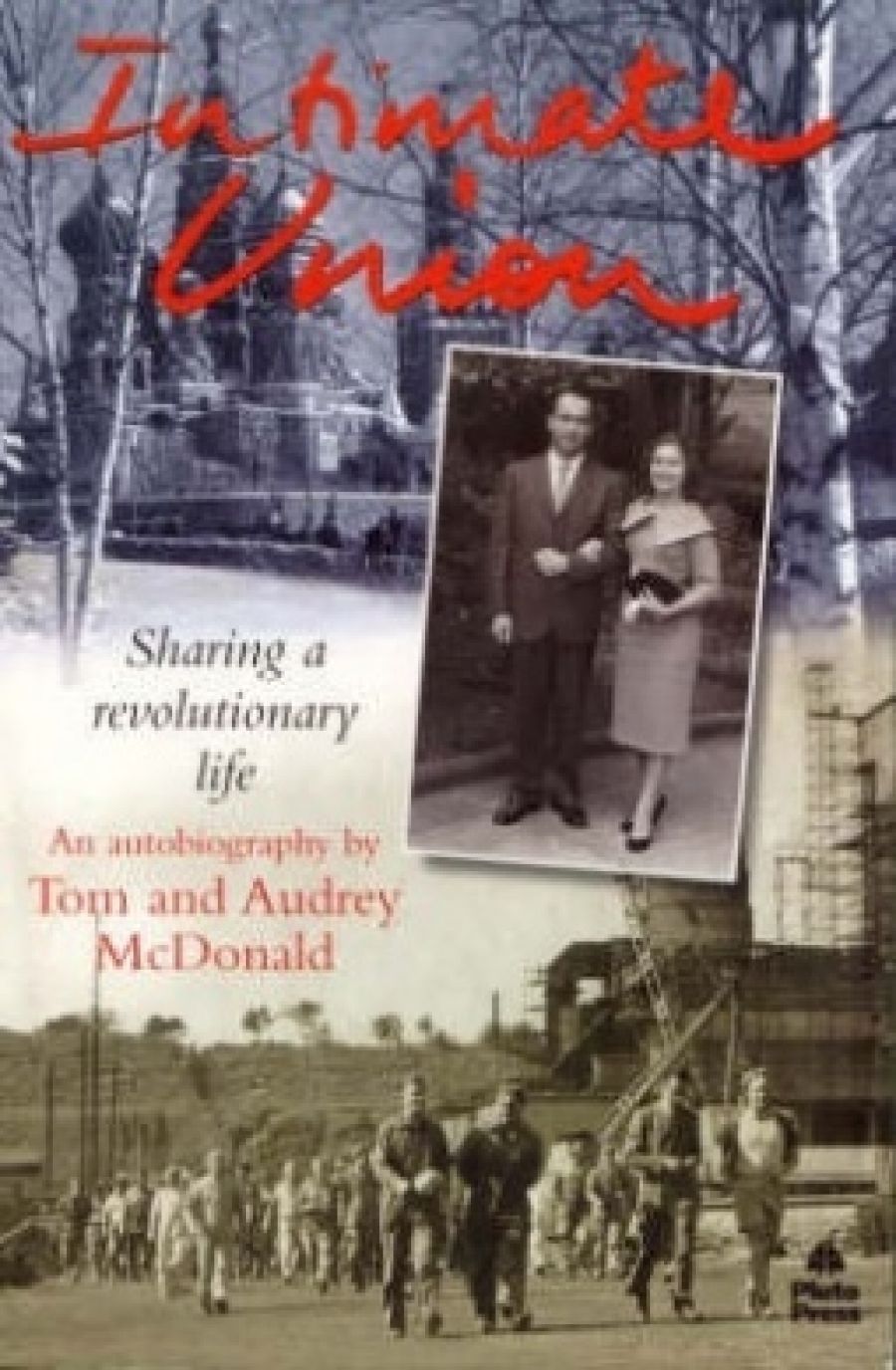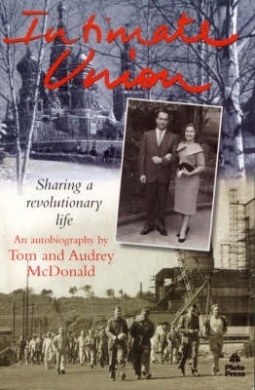
- Free Article: No
- Contents Category: Biography
- Review Article: Yes
- Article Title: The Committed Life
- Online Only: No
- Custom Highlight Text:
Tom and Audrey McDonald have shared a life of commitment together, promoting what they consider to be the political, social and economic interest of the Australian working class.
- Book 1 Title: Intimate Union
- Book 1 Biblio: Pluto Press, $24.95 pb, 422pp
- Book 1 Cover Small (400 x 600):

- Book 1 Cover (800 x 1200):

Told in two quite distinct voices, Intimate Union chronicles revolutionary politics in Australia from the Cold War to the present. In the process, much attention is focused on the peace movement, the campaign for women’s rights, and the turbulent battle in the Australian building industry, especially the bitter industrial fight between the BWIU and Norm Gallagher’s Builders Labourers Federation (BLF).
What is especially intriguing is that Tom and Audrey maintained their revolutionary faith longer than most dedicated communists – from the exposure of the Stalinist Terror through to the decline of Soviet Communism after Gorbachev. What still remains unclear is why they joined the CPA after the Hungarian invasion when so many others were leaving and why both stayed strongly under the influence of the CPSU. While it remains true that many idealists at the time were similarly blinkered to the awful realities of Soviet (and Papal) oppression, this still does not excuse what, in hindsight, can be regarded as a blatant form of ideological blindness. This is often the way with true believers, be they political or religious, of the right or of the left.
As Tom puts it in a crucial passage dealing with the 1960s, ‘We were a Party collective of two’. And when their son Daren, who also joined the CPA, grew up, the McDonald family became ‘a Party collective of three’. Tom tellingly continues, ‘We never had any serious ideological differences and always arrived – independently of one another – at a similar political position in the difficulty years of the Party.’
How different, I wonder, would this reminiscence be from similar recollections of committed members of that other notably Australian ‘movement’ of the time, the National Civic Council and its political offshoot, the DLP?
Significantly though, at different times Tom and Audrey took on communist party functionaries who insisted, in a quite autocratic and authoritarian way, on monitoring the personal standards and behaviour of individual party members. This particularly applied to the ominously named Central Control Commission which was active in the SPA in the early 1980s. Much of the book is composed in a humorous, deprecating and larrikin manner, almost always without rancour or resentment, even towards the ASIO operatives who harassed them both.
Indeed, what is striking about these veteran activists is their enviable ability to relate to the young, especially towards those who displayed what they term ‘a natural faith in socialism’. Particularly touching is their deep affection for a young intellectual, Peter Botsman, once a leading light of the Evatt Foundation and now the Director of the newly established Brisbane Institute. As Intimate Union explains, Tom and Audrey were firm supporters of Botsman in his various struggles against recalcitrant forces within the Evatt Foundation. Moreover Tom and Botsman joined together in 1992 in promoting the New Visions Movement, of which they were founding members, and in trying to improve the lot of the disadvantaged and the dispossessed, especially including Aboriginal peoples.
There is clearly a lot of idealism and philosophical commitment here. What a shame then that those inherently decent human beings, Tom and Audrey McDonald, did not come to the realisation years before they eventually did, that their collective ‘worship of the CPSU’ prevented them from denouncing the atrocities that were regularly occurring in the Soviet Union.


Comments powered by CComment